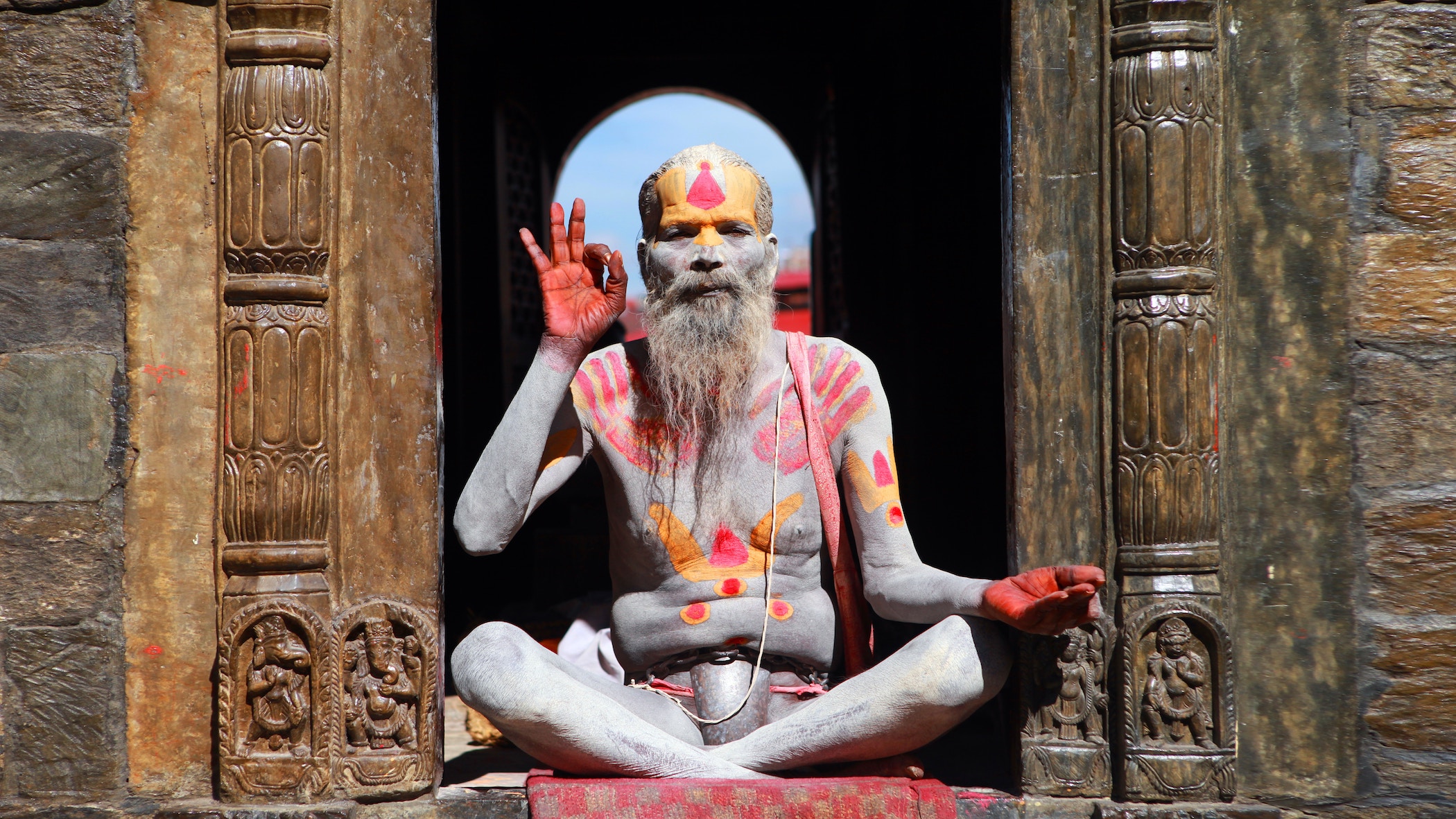How to Stop Depression:
The Best Natural Home Remedies
Let's talk about how to stop depression in its tracks, the easy and natural way. Even if you have clinical depression, these tips can help you to lower your depressive feelings.
Depression ill-affects countless relationships, impairs job performance and causes much emotional suffering and pain. And, to make matters worse, people are often depressed without realizing it.
Case Example
One of my psychotherapy clients, who suffers from anxiety, denied ever feeling depressed, but when I gave him a depression inventory, it seemed he had a moderate case of depression. As we explored his personal history, it became clear that he had suffered from chronic depression for most of his life. When I explained that the symptoms he was experiencing were signs of depression, he said, "Yep, that's me."
We began to talk about how to stop depression. Dave began to take a proactive approach to decreasing his depression, and learned to manage it on his own by thinking more rational thoughts and making better decisions, and by taking better care of himself. He responded well to Cognitive Behavioral Therapy, a type of treatment that targets irrational thoughts and emphasizes clear, logical thinking.
Myths
Myths abound about how to stop depression.
Many people think depression is strictly biological. While it may have a hereditary component, it is difficult to find specific genes for depression. Even if you inherit a tendency to be depressed, or traumatic events make you feel chronically sad, there is no guarantee that you will become depressed.
Some people seem more resilient to depression than others. The way we are raised may have a lot to do with our outlook on life, our coping skills, thought patterns and overall resiliency. Many people come up with creative ways to stop depression on their own. Others may need therapy.
Depression has a social component, and many of my colleagues in the mental health field think of it as a social disease. People around us may affect us in surprising ways. Depression is contagious. A child growing up in the home of a chronically depressed parent will be more likely to develop depressive symptoms than other children. Sometimes entire family systems are depressed. Spend time with someone who is depressed and you'll see what I mean.
On the other hand, happiness has a social component, too.
Yes, a happy mood is contagious! And an optimistic attitude can help.
In reality, all of us get depressed at one time or another. And we can get confused about how to stop depression, even though we may already know. Life's hard knocks can make anyone depressed, at least for a time. Even healthy people, who work in stressful work environments, or who are dealing with interpersonal strife or significant loss, may get depressed more often than the average person. Certainly, individuals facing financial problems, the loss of a job or a close relationship may develop symptoms of depression.
How to Stop Depression: Easy Tips for Reducing Depression
 When you're feeling down there are always steps you can take to start feeling better
When you're feeling down there are always steps you can take to start feeling betterDepression can sometimes be overcome without taking anti-depressant medication, and most people can learn to insulate themselves against depression or at least decrease its intensity. As a mental health professional, I understand that depression should sometimes be treated with medication, but it is not always necessary.
You can take steps to avoid falling into the depression pit or to stop depression. Let's take a look at several effective steps.
How to Stop Depression: 15 Steps You Can Take Now
- Strive to see the silver lining in every cloud. Seeing problems as opportunities in disguise, not as evidence the cards are stacked against you, will keep you in a good mood. Figure out something good that can come from the situation.
- Spend time with positive, energetic people, and immerse yourself in healthy environments. Avoid unhealthy or depressing environments, if you can.
- Read inspirational books and listen to uplifting music on a regular basis to stop depression.
- Get plenty of exercise. Exercise releases the stress in our bodies and is an amazing boon to our overall health and well being! It can be as effective as medication.
- Focus more of your time on having fun and interacting with others in playful ways. Play and laughter are amazingly curative! If you've forgotten how to play, spend more time with children. They'll show you how.
- Spend more time connecting with your friends. Not just one friend, but maintain connection with your social network. Take care of your relationships. They will assist in healing your emotional wounds. And they comprise the bridge to success in every walk of life! When you do for others you feel good again.
- Spend plenty of time out-of-doors to stop depression. Let Mother Nature take care of you. Her sunshine and green, growing things will sure help. Water. Rainbows and flowers. Beautiful animals. Sunsets and sunrises. All that lifts your spirits. Don't stay indoors all the time. Get outside and take a deep breath or two, and inhale that stimulating fresh air and that vitamin-packed sunshine!
- Foster your inner life. Lead a contemplative life. Find the richness inside you and connect to that which lies beyond. Learn to relax deeply and rest your weary spirit. If you are a person of faith, allow your Higher Power to walk with you.
- Become a part of a community. Give generously to others and work to make your world a better place. Focus on improving your relationships.
- Keep your life balanced. Give time to all the important aspects of your life. Avoid the tendency to obsess on a single aspect of your life, such as work.
- If you are dealing with a depressed person in your life (which can make you depressed), limit your contact or prepare yourself sufficiently so you can keep yourself strong and positive.
- If you are battling depression, alcohol is a no-no. Fact is, drinking makes you more depressed. Alcohol impacts the brain in much the same way as depression, ill-affecting the synoptic pathways. Don't drink or you'll feel worse and cloud your decision making ability.
- Do work you love.
- Reconnect with the highest purpose for your life.
- Throw yourself into a couple of good hobbies and spend time having fun!
 Start Smiling Again By Taking Control of Your Depression
Start Smiling Again By Taking Control of Your DepressionLearning how to stop depression isn't so hard if you put your mental health needs first. It's all about taking good care of yourself. You can stop depression or lighten it by trying the above tips and developing healthy mental habits. You may need to rethink some of your familiar thought patterns. Sometimes it's the way we see things or interpret events that gets us into trouble. A negative perceptual style can cause or worsen problems.
Strive to see the pluses in life. Find the good in disappointing events. Turn problems and barriers into your allies, and rainy days into rainbows.
Learning to think more optimistically can really nip depression in the bud. Looking for the good in others, and in life's problems and hard knocks, can train your mind to react more constructively to adversity.
LENNON AND McCARTNEY
It's important to spend time with positive people. Join a group or organization and attend their meetings. You'll meet people and make new friends. John Lennon and Paul McCartney, two of the greatest songwriters in history, met at a church youth group!
It's a good thing for all of us that they got out of the house and went to their youth group meetings. Remember, one way to treat depression is to spend time with positive people, who can lift your spirits and help you to connect with the world around you in healthy ways. Join a group. Go to a meeting. Get out of the house.
If nothing seems to help, get professional assistance. A trained healthcare professional will help you to assess and treat your depression effectively and quickly. Therapists are trained in how to stop depression.
Depression can be a pesky and serious problem, even life-threatening, if not treated. If you have severe or clinical depression, get therapy and ask your provider about taking anti-depressants. The combination of effective psychotherapy and medication may be your best bet in getting relief.
Remember, your life matters. Your happiness is important to not only yourself, but everyone in your life. So take care of yourself!
Cure Loneliness and Start Feeling Better Now
If you suffer from lonely feelings, or feel lonely in a crowd (or a relationship), I recommend you look into our powerful email course, The Cure Loneliness e-Course. Life is too precious to waste. Discover how you can start feeling better soon, using proven and effective therapeutic techniques, and learning new skills and habits that will bring you real happiness.
The Cure Loneliness e-Course is designed to help you to:
- Learn new concepts and ideas to free you from the chains of loneliness
- Dispel the myths of loneliness
- Learn powerful new skills to help you to resist the loneliness trap
- Develop new habits to ensure you can cope with whatever life throws at you
- Find strategies to connect with others and to build a happier social life
- Enhance a sense of belonging and greater acceptance
- Convert your problems into opportunities in disguise
- Find greater meaning, joy and happiness in the precious present
- Overcome and replace negative thought patterns that keep you chained
- Free yourself from the specter of past mistakes and broken relationships
- Find new pathways to strengthen yourself and inspiration on how to stop depression
Our Cure Loneliness e-Course holds your hand and guides you every step of the way, as you journey toward developing skills in how to stop depression, finding greater delight and well being,and creating new habits and behaviors. You'll build a plethora of positive patterns in your life, and the course offers insider tips on how to decrease anxiety and depression. You'll receive one lesson a day for 14 days, or two weeks, with strategies and action steps to try each day. At the end of the 14 day period, you will receive instructions for accessing more help in overcoming your loneliness. You can take a look at the course here. The chains of loneliness can be hard to break, especially chronic loneliness. Past conditioning affects the way we respond to situations and often we see problems as proof of our failures as a person. So, it's wise to get help in dealing with the causes of loneliness, and expert professional direction, which you will find in this one-of-a-kind get in the course.
How to Stop Depression: Simple Steps You Can Take Now
How to stop depression: simple, but powerful steps you can take to decrease depression, which are fun to try:
- Walking in nature
- Getting some exercise
- Joining a yoga class
- Making time to meditate every day
- Increasing social activity (spending time with positive and upbeat friends)
- Finding opportunities to laugh more
- Avoiding comfort food and eating a healthy, whole food diet
- Reading inspirational books
- Searching for the silver lining in every dark cloud
- Making the most of your relationships (enjoying and improving them)
- Practicing forgiveness
- Spending time with children
If you've been wondering how to stop depression, you can improve your depression and anxiety by taking the initiative to get up and do something enjoyable and good. It will make a small (or not so small) difference in the way you feel. In time, small improvements can become big ones.
For more information on conducting state-of-the-art relationships, the latest research on true happiness, and Richard's products and services, subscribe to our newsletter!






